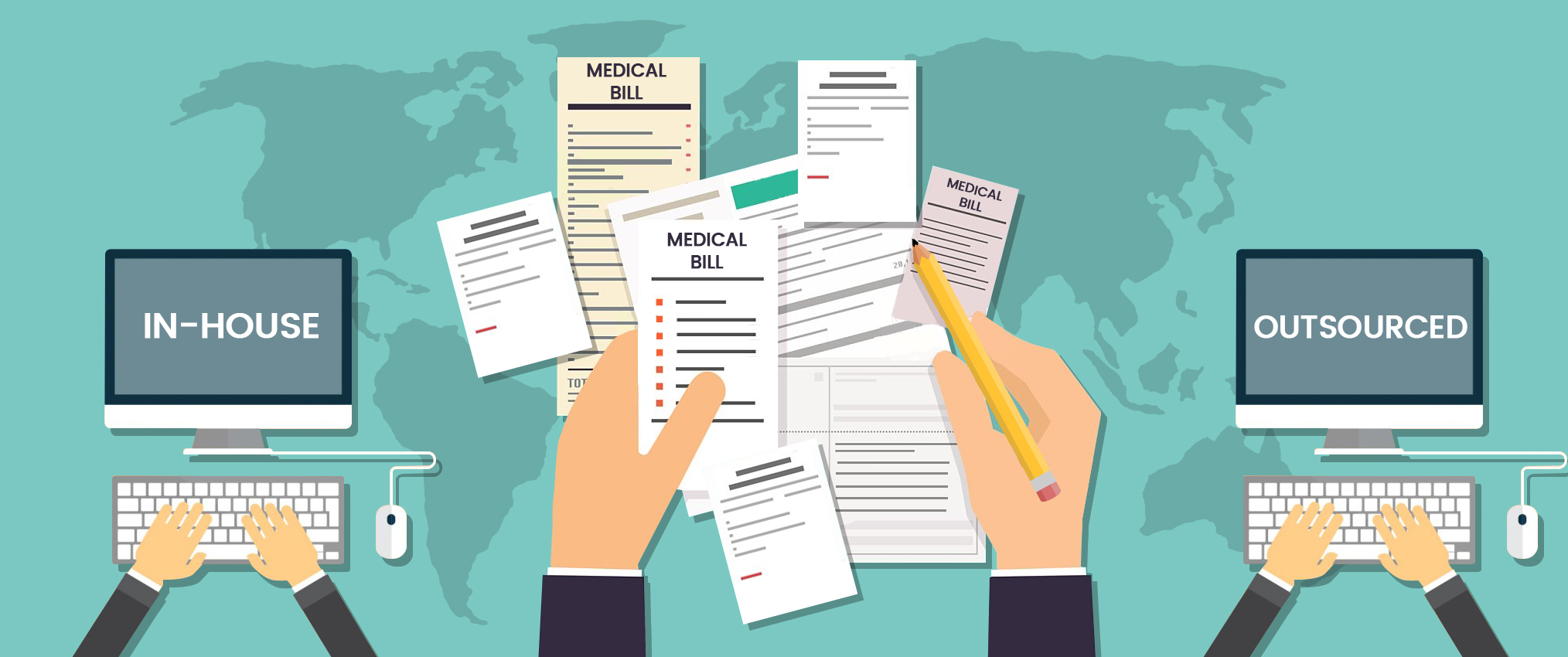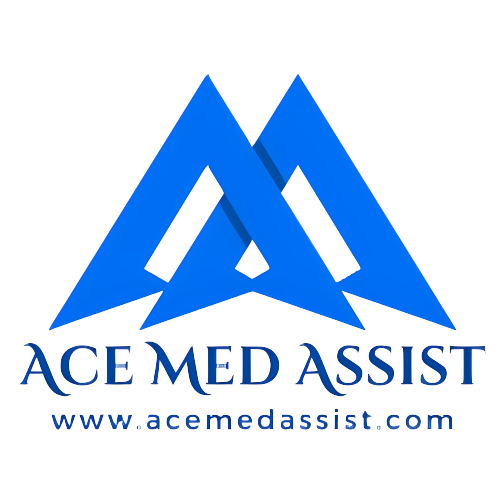Medical billing services are essential to the financial stability and longevity of hospitals. As healthcare systems grow more intricate, the demand for precise and efficient billing processes has become more critical.
These services involve various tasks like coding, submitting claims, and managing reimbursements to ensure healthcare providers are properly compensated for their services.
Hospitals depend on prompt and accurate reimbursements to keep operations running, invest in advanced equipment, and offer top-quality patient care. Inefficient billing can lead to financial difficulties, potentially hindering hospitals’ ability to provide the best care to their communities.
Overview of the Medical Billing Process

The medical billing process is a complex and multifaceted system that involves several steps to ensure accurate reimbursement for healthcare services provided by hospitals.
It begins with the patient’s visit to the healthcare facility and extends to the submission and processing of claims with insurance companies. Understanding the key components of the medical billing process is crucial for hospitals to maximize reimbursement.
- Patient Registration: The process begins with patient registration, where essential demographic and insurance information is collected. This step is critical as it sets the foundation for accurate billing and claims submission.
- Medical Coding: Once the patient’s visit is complete, medical coding takes place. Medical coders assign specific codes to each procedure, diagnosis, and service provided during the patient’s visit. These codes, such as CPT (Current Procedural Terminology) and ICD-10 (International Classification of Diseases, 10th Revision), ensure proper documentation and facilitate claims processing.
- Claims Submission: After coding, the medical billing team compiles the necessary documentation and submits claims to insurance companies or third-party payers. This step involves adhering to specific billing guidelines and accurately completing claim forms to ensure timely reimbursement.
- Claims Processing: Insurance companies review the submitted claims, verifying the accuracy of the information provided. They assess whether the services rendered are covered under the patient’s insurance plan and determine the reimbursement amount based on the agreed-upon fee schedule.
- Payment and Reimbursement: Upon processing the claims, insurance companies issue payments to hospitals for the covered services. Reimbursement amounts may vary depending on factors such as negotiated rates, deductibles, co-pays, and policy limitations.
Common Challenges in Medical Billing and How Medical Billing Services Can Address Them?

Despite the importance of medical billing, several challenges can hinder the reimbursement process. However, medical billing companies can help address these challenges effectively:
- Coding Errors: Inaccurate or incomplete coding can lead to claim denials or underpayment. Medical billing services employ skilled coders who ensure proper coding and adherence to coding guidelines, minimizing errors and optimizing reimbursement.
- Claim Denials and Rejections: Insurance companies may deny or reject claims due to various reasons, such as missing information, eligibility issues, or coding errors. Medical billing services have expertise in claims management, including thorough claim scrubbing and follow-up, reducing denials, and improving the chances of successful reimbursement.
- Evolving Regulations and Compliance: The healthcare industry is subject to ever-changing regulations and compliance requirements. Medical billing services stay up-to-date with these changes, ensuring that hospitals adhere to regulatory guidelines and minimize compliance-related challenges.
- Administrative Burden: Medical billing processes can be time-consuming and resource-intensive for hospitals, diverting staff from patient care. Outsourcing medical billing services can alleviate this burden, allowing healthcare providers to focus on delivering quality care while ensuring efficient and accurate billing.
The Role of Technology in Medical Billing Services

In recent years, technology has revolutionized the healthcare industry, including medical billing services.
These advancements encompass various areas, such as electronic health records (EHRs), coding software, claims management systems, and revenue cycle management tools.
- Electronic Health Records (EHRs): EHR systems have replaced traditional paper-based medical records, streamlining the documentation process. EHRs allow healthcare providers to record patient information, diagnosis, treatment plans, and other relevant data digitally. Integration of EHRs with medical billing systems enables seamless transfer of information, reducing errors and enhancing billing accuracy.
- Coding Software: Modern coding software has simplified and expedited the coding process. These software solutions offer features such as code suggestion, real-time validation, and automated updates to coding guidelines. This technology helps medical coders efficiently assign accurate codes, reducing coding errors and ensuring compliance.
- Claims Management Systems: Technology-driven claims management systems automate and streamline the claims submission process. These systems facilitate the electronic submission of claims to insurance companies, track claim status in real time, and provide alerts for pending or denied claims. This automation saves time, reduces administrative burden, and improves the efficiency of the reimbursement process.
- Revenue Cycle Management Tools: Advanced revenue cycle management tools integrate various aspects of medical billing, including patient registration, coding, claims submission, and payment processing. These tools provide comprehensive insights into the financial performance of hospitals, identify bottlenecks, and enable proactive revenue cycle management strategies.
Benefits of Utilizing Technology in Medical Billing Services
The utilization of technology in medical billing services in US offer numerous benefits for hospitals and healthcare providers:
- Increased Efficiency: Technology streamlines and automates manual tasks, reducing the time and effort required for medical billing processes. This efficiency translates into faster claims submission, reduced processing time, and accelerated reimbursement cycles.
- Improved Accuracy: Technology solutions minimize human errors by automating repetitive tasks and providing real-time validation of coding and documentation. This leads to more accurate claims submissions, reducing the chances of claim denials and underpayment.
- Enhanced Revenue Optimization: By leveraging technology, hospitals can gain better visibility into their revenue cycle, identify potential revenue leaks, and implement proactive strategies to maximize reimbursement. Real-time analytics and reporting tools enable data-driven decision-making, helping healthcare providers optimize their financial performance.
Strategies for Maximizing Reimbursement through Medical Billing Services

Ensure Accurate and Timely Coding
Importance of Proper Code Selection and Documentation:
Accurate code selection and comprehensive documentation are crucial for maximizing reimbursement. Proper coding ensures that the services rendered are correctly represented, increasing the chances of reimbursement approval.
Additionally, thorough documentation supports the medical necessity of the services provided, justifying the reimbursement amount. Medical billing services should emphasize the importance of accurate coding and guide proper documentation practices.
Training and Education for Medical Billing Staff
Continuous training and education for medical billing staff are essential to stay updated with coding guidelines and regulatory changes.
This training ensures that billing professionals are equipped with the knowledge and skills necessary to accurately assign codes, follow documentation requirements, and navigate complex reimbursement rules. Regular educational sessions and workshops can help enhance coding accuracy and optimize reimbursement.
Improve Claims Management and Denial Resolution
Streamlining the Claims Submission Process
Efficient claims submission processes reduce delays and errors, improving the likelihood of timely reimbursement. Medical billing services should implement streamlined workflows and utilize electronic claim submission methods to expedite the process.
Automation and integration of electronic health records (EHR) with billing systems can further enhance efficiency by reducing manual data entry and ensuring accurate transmission of claim information.
Implementing Proactive Denial Management Strategies
Denials can significantly impact reimbursement rates and cash flow. Proactive denial management strategies aim to prevent denials and minimize their impact. This involves analyzing denial trends, identifying root causes, and implementing corrective measures. Medical billing services should employ denial management tools and processes, such as real-time claim tracking, claim scrubbing, and prompt appeals, to address denials promptly and optimize reimbursement.
Enhance Revenue Cycle Management
Effective Patient Registration and Eligibility Verification
Accurate patient registration and thorough eligibility verification are essential for maximizing reimbursement. Ensuring that patients’ insurance information is up-to-date and valid helps avoid claim denials due to coverage issues.
Medical billing services should implement robust patient registration processes that capture complete and accurate demographic and insurance details. Automated eligibility verification tools can also assist in confirming insurance coverage and identifying potential limitations or requirements.
Optimize Charge Capture and Billing Accuracy
Optimizing charge capture processes is crucial for accurate billing and reimbursement. It involves capturing all billable services and ensuring that they are properly documented and coded.
Medical billing services should implement systems and audits to capture charges accurately, reconcile them with documentation, and ensure compliance with coding guidelines. Regular charge audits can identify any missed opportunities and help maximize reimbursement.
Outsourcing Medical Billing Services

Benefits of Outsourcing Medical Billing Services
Outsourcing medical billing services in Michigan and several other states has become a popular choice for hospitals seeking to optimize their revenue cycle management and maximize reimbursement.
Expertise and Specialization
Professional medical billing service providers specialize in revenue cycle management and possess in-depth knowledge of coding regulations, payer requirements, and industry best practices. They bring a wealth of expertise and experience to optimize the billing process and navigate complex reimbursement systems.
Cost Savings
Outsourcing medical billing services can lead to significant cost savings for hospitals. By partnering with a third-party provider, hospitals can reduce administrative expenses associated with staffing, training, software, and infrastructure.
It allows them to leverage the expertise of the outsourced team at a fraction of the cost compared to maintaining an in-house billing department.
Improved Efficiency and Accuracy
Medical billing service providers utilize advanced technologies, automated systems, and streamlined workflows to enhance the efficiency and accuracy of the billing process.
Their dedicated focus on medical billing allows them to handle tasks promptly, reducing errors, accelerating claims submission, and improving reimbursement turnaround time.
Scalability and Flexibility
Outsourcing medical billing services offers scalability and flexibility to hospitals. As patient volumes fluctuate, outsourcing providers can quickly adjust resources to meet demand. This scalability ensures that hospitals can maintain smooth operations and avoid bottlenecks in the billing process during peak periods.
Best Practices for Successful Collaboration with Medical Billing Service Providers

To foster a successful collaboration with a medical billing service provider, hospitals should consider the following best practices:
Clear Communication and Expectations
Establish open and clear lines of communication with the service provider from the outset. Communicate your hospital’s expectations, specific requirements, and desired outcomes. Regular communication and feedback channels help ensure that both parties are aligned and working towards shared goals.
Collaboration and Knowledge Transfer
Collaborate with the billing service provider to share relevant information about your hospital’s operations, documentation practices, and billing preferences. This collaboration facilitates a deeper understanding of your hospital’s unique needs and enables the provider to tailor their services accordingly.
Regular Performance Reviews
Conduct periodic performance reviews to assess the effectiveness and efficiency of the medical billing services. Review key performance indicators, billing accuracy rates, claim denial rates, reimbursement turnaround time, and other relevant metrics. These reviews allow both parties to identify areas for improvement and make necessary adjustments to enhance the revenue cycle management process.
Continuous Evaluation and Adaptation
Continuously evaluate the performance of the medical billing service provider and assess the impact on reimbursement and financial performance. Be open to making adjustments and adaptations based on evolving needs, changes in regulations, and emerging industry trends.
Conclusion
Medical billing services play a crucial role in helping hospitals maximize reimbursement and optimize their revenue cycle management. By understanding the medical billing process and the challenges it entails, hospitals can identify areas where outsourcing these services can bring significant benefits.
By leveraging the benefits of outsourcing medical billing services and implementing effective strategies, hospitals can streamline their billing processes, improve reimbursement rates, and ultimately enhance their financial performance. This enables healthcare providers to focus on delivering quality care while ensuring accurate and timely reimbursement for the services they provide.
Keypoints to Remember:
- Critical Role of Medical Billing: Essential for hospital financial health, ensuring accurate reimbursements.
- Core Billing Tasks: Coding, claims submission, and reimbursement management ensure proper compensation.
- Impact on Hospital Operations: Timely reimbursements are vital for maintaining operations and providing quality care.
- Technology Integration: Tools like EHRs and coding software improve billing efficiency and accuracy.
- Outsourcing Benefits: Outsourcing medical billing services reduces administrative burdens and improves reimbursement rates.









